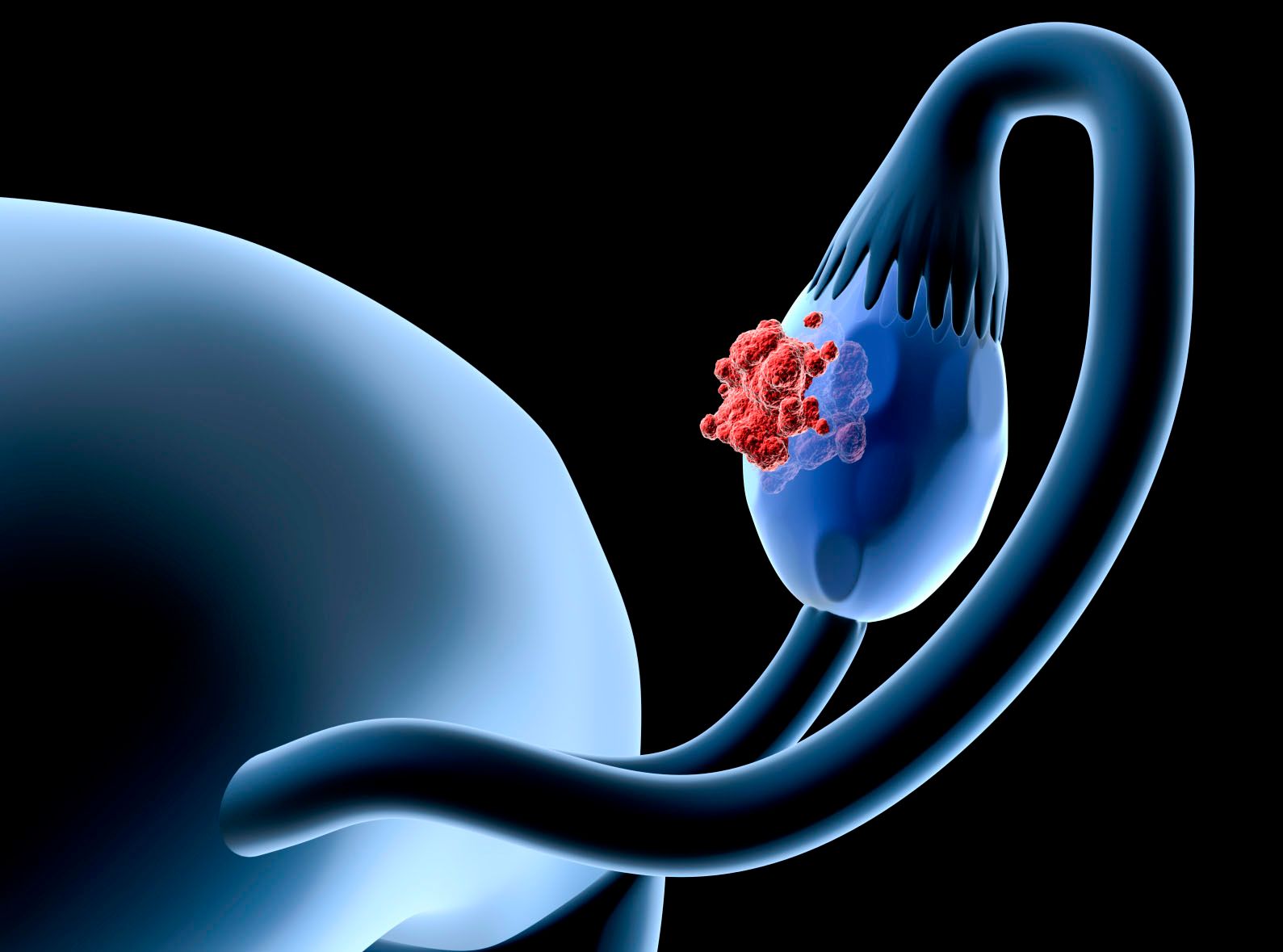Letrozole Maintenance Demonstrates Improved RFS in Ovarian Cancer
According to a small, single-site prospective observation, women with ER-positive advanced high-grade serous ovarian cancer who received maintenance therapy with letrozole were more likely to be recurrence-free at 24 months, suggesting that letrozole may have a role to play in this setting, especially for patients with chemotherapy resistance or residual disease.<br />

According to a small, single-site prospective observation, women with ER-positive advanced high-grade serous ovarian cancer who received maintenance therapy with letrozole (Femara) were more likely to be recurrence-free at 24 months, suggesting that letrozole may have a role to play in this setting, especially for patients with chemotherapy resistance or residual disease.
In the study at University Hospital Basel, a group of 50 ER-positive high-grade serous ovarian cancer (HGSOC) FIGO III/IV patients were treated with standard adjuvant platinum-based chemotherapy. Then 23 patients received 2.5 mg of daily letrozole maintenance therapy and 27 patients served as a control group. The letrozole arm consisted of 60% FIGO III and 40% FIGO IV patients compared with 75% FIGO III and 25% FIGO IV in the control group. The groups were comparable for residual disease (R0 in 58%).
Investigators found that 60% of patients assigned to letrozole were recurrence-free versus 38.5% in the control group (P= .035). The control group reached IC50after 13.2 months, but recurrence-free survival (RFS) could not be calculated for the experimental group because only 1 patient had reached that endpoint at the time of the analysis.
“In our small single-site prospective observation in HGSOC FIGO III/IV patients, we could demonstrate a significant progression-free survival benefit from maintenance treatment with letrozole following standard of care,” corresponding author Viola Heinzelmann-Schwarz, MD, PhD, University Hospital Basel, et al wrote. “This positive effect could particularly be seen when the treatment was initiated within 3 months after the end of adjuvant chemotherapy.”
Investigators also observed the RFS benefit with letrozole in a group of high-risk patients with residual disease who were treated with bevacizumab (Avastin) maintenance: after 12 months, the RFS rate was 87.5% with letrozole in addition to bevacizumab versus 20.8% with bevacizumab alone (P = .026).
In the overall study, investigators working in Australia and Switzerland performed a retrospective analysis on data from 4278 patients collected in 4 cohorts:
- ESR1 gene expression was measured in the publicly available US-American TCGA and the Australian Tothill datasets (cohort A; n = 527)
- ER expression in HGSOC FIGO III/IV cancer patients was measured in another US-American cohort from Caris Life Sciences (cohort B; n = 4071)
- primary and matched recurrent HGSOC FIGO stage III/IV patients were examined for ER expression (cohort C; n = 80)
- all newly diagnosed HGSOC FIGO III/IV with positive ER expression using IHC were prospectively included in the investigators’ single-site letrozole maintenance treatment approach at the University Hospital Basel, Gynecological Cancer Centre (cohort D; n = 50)
Since 2013, all newly diagnosed HGSOC FIGO III/IV patients with ER positive cancers equal or above 1% treated at University Hospital Basel have been offered 2.5 mg of daily letrozole as an off-label maintenance treatment following debulking surgery and adjuvant platinum-based chemotherapy.
Reviewing the TCGA PANCAN database, investigators foundESR1expression to be a predictor in all cancers for overall disease-free survival (n = 8901; hazard ratio [HR], 0.935; 95% CI, 0.9222-0.9474; p-value based on Cox regression <2e−16), and RFS (n = 5664; HR, 0.909; 95% CI, 0.8905-0.9287; p-value based on Cox regression <2e−16).
Investigators then analyzed the expression of ESR1 in different TCGA cancer types and found that ESR1 expression was “strikingly” upregulated in breast, endometrial, and ovarian cancers. They noted that this suggests that endometrial and ovarian cancer might be targetable with similar drugs as currently used in ER-positive breast cancer patients.
Almost half of FIGO III/IV US-American patients with high-grade serous ovarian cancer (cohort B; n = 4071) expressed ER-positivity as measured by IHC. The ER-expression pattern was similar at different treatment sites, and therefore had no effect on the overall result.
Reference:
Heinzelmann-Schwarz V, Mészaros AK, Stadlmann S, et al. Letrozole may be a valuable maintenance treatment in high-grade serous ovarian cancer patients [published online November 17, 2017]. Gynecol Oncol. doi: 10.1016/j.ygyno.2017.10.036.